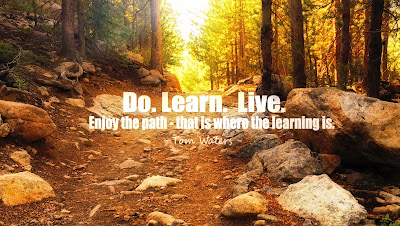Measuring Student Growth with Vocabulary: Part 1
The principal calls you in for a meeting.
She pulls out your recent Common Assessment scores.
Everyone questions the quality of the test.
You had no input on creating the test.
Only 30% of your students met the standard.
She then pulls out your team scores and shows that two other teachers' are 3 points higher than yours. What in the world is wrong with this scenario?
Big Problem with the Common Assessments
First, the statistics are horrible. Not the scores, but the actual mathematics. The single largest problem with these assessments is their lack of statistical reliability or correlation to anything.
Read more on the Dangers of Assessment Data.
No more research terms, but essentially the same exact student can take the same exact test tomorrow and score 10 to 20 points higher or lower. That's what I mean by reliability - it is not measuring "pure" learning over time. Other major problems persist in the scenario above. But let's look at a solution. So what is better?
Read more on the Dangers of Assessment Data.
No more research terms, but essentially the same exact student can take the same exact test tomorrow and score 10 to 20 points higher or lower. That's what I mean by reliability - it is not measuring "pure" learning over time. Other major problems persist in the scenario above. But let's look at a solution. So what is better?
Academic Background Knowledge
Vocabulary for academic background knowledge is one of the most important variables in a student's academic success. This is true for Language Arts, Reading, Math, Social Studies, and Science. Why?
If a student cannot understand the words and concepts that the class is discussing, the student will suffer. If words in a text or in math word problems are misunderstood, the student will be significantly underperforming his or her potential. This is why we must instruct and measure student background knowledge. So what do we do?
 Success = Student Growth
Success = Student Growth
The principal's use of the common assessment did not address student growth. It hardly ever does! Teacher discussion of data hardly ever does! Governmental accountability ratings hardly ever do! Why?
Because we don't have the right tools for the job.
Because we don't have the right tools for the job.
We want our assessments to measure growth. That is the single most important measurement to determine the effectiveness of what we do in the classroom and in schools. Growth is the single most important measurement to determine the effectiveness of what we do in classrooms and schools. If our end result is learning, then we should be measuring just that - growth.
Vocabulary Can Be The Tool
Are the students ready to learn? Do they have the requisite background knowledge? Are they even aware of the most foundational and essential concepts? Are they ready to apply and to go into deeper Thinking and skills within the curriculum? These are the questions that we can answer when we use vocabulary assessments.
Here's How
At the beginning of each unit of study, the teacher gives a 10-20 question assessment. 10 minutes max. This helps the teachers realize first of all how much instruction time needs to be given to background knowledge. At the end of the unit of study, a different form of the same assessment should be given as a post-test. This test does not assess all of the content or skills within a unit. However, it does measure the most critical and foundational understanding that students must master. And more importantly, it can measure the amounts of growth students achieved. In a reliable way. And in a way sensitive to growth because it is assessment very surface level understandings.
Here's the data we need. How much academic background knowledge do students gain within a unit of study? Here's a sample:
- The average score of 35 on the vocabulary pre-assessment.
- After 3 weeks of a unit, the teacher gives the vocabulary post-test. His class achieved an average score of 75.
A Real Academic Foundation
Even if they struggle with the high-level skills, they are building an academic foundation. The foundation is built on academic vocabulary. It will snowball and catch up in their tutorial sessions and remediation. It will snowball in a positive and powerful way. This is true because academic vocabulary empowers students to participate in academic thinking and discussing.
This is real data that educational leader can use to compare performance within her campus, between campuses, and within the district. It provides growth data for the dashboard - data sensitive to lower and higher achieving students! Data that tells the story of empowerment. That predicts future, higher-level results!
This recent research shows how Spelling is a Predictor of Reading Comprehension and is a great way to measure progress in reading comprehension.
This recent research shows how Spelling is a Predictor of Reading Comprehension and is a great way to measure progress in reading comprehension.




Comments
Post a Comment
What are your thoughts?